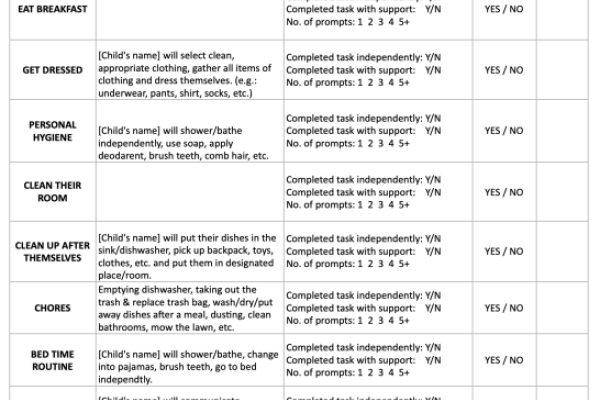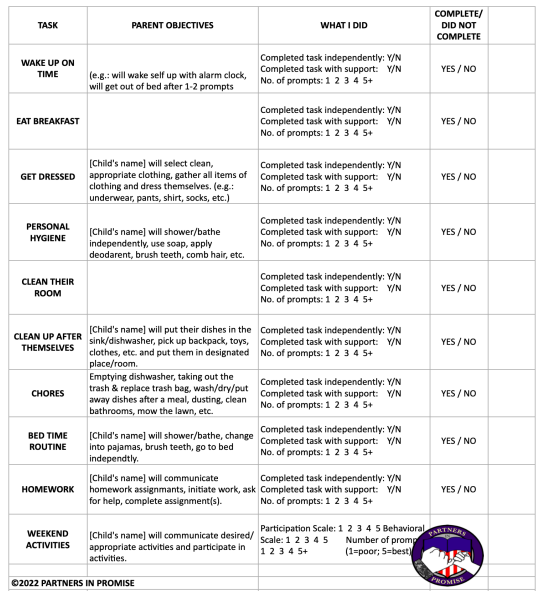
Survey Findings – Your Questions Answered
| Resource Partners, Resources, Survey Data
Did you miss our data release with Easterseals’ Candid Conversations? Did you attend, but not see your questions answered? Watch the recording and/or read the answers we compiled with the help of our panelists, Military Interstate Children’s Compact Commission (MIC3) and EFMP Coalition partners EFM!
Candid Conversations Q&A: Your Questions Answered
Here we offer a summary of questions received during the Q&A session of Easterseals DC MD VA/Partners in PROMISE webinar on February 18, 2022, with responses and additional resources. We appreciate all those who attended the webinar and submitted questions and hope you find this document useful.
- What, if anything, is being done to include military families in affordable housing within high-tax school districts?
- While we cannot fully address housing issues, we can say that the U.S. Department of Defense (DOD) has raised the housing allowance in an effort to keep up with rising costs of housing. Some states and school districts also offer School Choice, which enables families to choose a school in a potentially pricier school district.
- What are schools required to publish on their websites regarding pre-school special education?
- Every school district is required to publish information about Child Find. This is required as a part of the Individuals with Disabilities Education Act (IDEA). This link provides some helpful information about Child Find and the process for families: https://www.understood.org/articles/en/section-619-free-preschool-special-education. Whether this information is published on their websites is dependent on the school district. If you would like to discuss this further, we would love to hear more about your thoughts and concerns. Please email us at info@partnersinpromise.org.
- Would including special education protections or practices in the Military Interstate Children’s Compact Commission (MIC3) benefit military families?
- The answer is yes and no. The Interstate Compact on Educational Opportunity for Military Children is an agreement among the 50 states and the District of Columbia to ease the transitions of military students attending public schools and DoD schools. As members, the states have passed statutes to follow the rules and regulations under the Compact. Regarding special education, federal law (specifically, the Individuals with Disabilities Education Act [IDEA]) governs parental rights and school district responsibilities. Because the Compact cannot supersede federal law, changing the Compact would not result in additional benefits for military families. Moreover, because the Compact is an agreement adopted by 50 states and the District of
Columbia, each state statute must be amended in exact accord to amend the Compact. Any variation in
the amendments would likely invalidate the Compact, which would result in fewer protections for transitioning military students. If IDEA is not meeting the needs of military students, we recommend advocating for changes to IDEA and its regulations to address the issues faced by military families. For more information on IDEA, visit
https://sites.ed.gov/idea/.
- The answer is yes and no. The Interstate Compact on Educational Opportunity for Military Children is an agreement among the 50 states and the District of Columbia to ease the transitions of military students attending public schools and DoD schools. As members, the states have passed statutes to follow the rules and regulations under the Compact. Regarding special education, federal law (specifically, the Individuals with Disabilities Education Act [IDEA]) governs parental rights and school district responsibilities. Because the Compact cannot supersede federal law, changing the Compact would not result in additional benefits for military families. Moreover, because the Compact is an agreement adopted by 50 states and the District of
- Advanced enrollment is not part of the MIC3. It is a separate legislation in those states being led by a Defense State Liaison, correct?
- This is correct. Advanced Enrollment in states is one of several topics advocated by the U.S. Department of Defense State Liaison Office (DSLO) and is outside the Commission’s rules and regulations. The DSLO works closely with the Commission and briefs members on their priorities annually. For more information on DSLO, contact their office or visit https://statepolicy.militaryonesource.mil/about.
- Is it possible for other service branches to provide special education training similar to what the Air Force provides via the Exceptional Family Member Program (EFMP) and School Liaison Officers (SLOs)? How can families and educational professionals access this training?
- Other branches are in the process of adding this type of training, from sending representatives to special education advocacy training at the College of William & Mary’s Parents Engaged for Learning Equality (PELE), to bringing Wright’s Law or ARC training to their installation. Family members and professionals can reach out to your EFMP Systems Navigator or Coordinator at your installation. Another great resource is the Parent Learning and Training Center located in every state. Find your Parent Center: https://www.parentcenterhub.org/find-your-center/.
- We are an Air Force family and our daughter has been diagnosed with Autism. We live in a base with little to no Autism care, so we have tried working with EFMP and her pediatrician but they have been less than helpful. We are trying to help our daughter and it feels like no one cares or wants to help.
- We care – and many other people do, too! We suggest reaching out to a developmental pediatrician for
further assistance in your area. We also suggest you contact your TRICARE provider (see
https://tricare.mil/autism) to ask for assistance. You may also want to look into a humanitarian assignment; contact your base personnel or AFPC. Our EFMP Coalition partner, Exceptional Families of the Military, would also like to try and assist you. Find more about them at https://exceptionalmilitaryfam.com/. Lastly, there is also an online support group with other military families, which you can connect with through Facebook at https://www.facebook.com/groups/926071584615676.
- We care – and many other people do, too! We suggest reaching out to a developmental pediatrician for
- Is there a place where I can search for very specific needs and the support that a school can provide? My daughter was diagnosed with ADHD, TICs, anxiety, and ODD. … She is on an IEP and I know there is more the school can do, but they won’t tell me what more can be done.
- Thank you for asking this question. As a parent, you can ensure that every area of need has been evaluated by the school district. If there are areas of concern that the district has not evaluated, you can request the evaluation. If your child’s progress has stagnated or she is not making meaningful progress, then the IEP team can meet to discuss interventions and perhaps develop more appropriate programming. It is also important to track your child’s needs outside the school setting so you can paint a better picture for the school of your daughter’s overall needs. Consider how you help your child through the day outside of school, document this, and share it with the IEP team. You can do this with a data sheet at home. Below is a screenshot of an example. Feel free to reach out to Partners in PROMISE directly if you would like some additional information.
The parent training and information centers referenced under Question 5 can be a good resource, as
well.
- Thank you for asking this question. As a parent, you can ensure that every area of need has been evaluated by the school district. If there are areas of concern that the district has not evaluated, you can request the evaluation. If your child’s progress has stagnated or she is not making meaningful progress, then the IEP team can meet to discuss interventions and perhaps develop more appropriate programming. It is also important to track your child’s needs outside the school setting so you can paint a better picture for the school of your daughter’s overall needs. Consider how you help your child through the day outside of school, document this, and share it with the IEP team. You can do this with a data sheet at home. Below is a screenshot of an example. Feel free to reach out to Partners in PROMISE directly if you would like some additional information.

- What is the most effective way to file a complaint when the school or district staff block a child’s access to Free Appropriate Public Education (FAPE)?
- Your state department of education should have a formal process you can access on their website. A list of contact information can be found here: https://www2.ed.gov/about/contacts/state/index.html
- When I was in the military, I found that one obstacle to military families’ use of due process was lack of knowledge of their rights, as well as the absence of lawyers to represent them. What if the law required JAG to represent them? Another idea would be to earmark IDEA funds to hire lawyers to exclusively represent military families, or to fund lawyers to work in EFMP programs.
- All great ideas. With the passage of Section 582(b)(7) of the 2021 National Defense Authorization Act,
military branches do now provide legal assistance by an attorney trained in special education law at
every legal assistance office – or they are in the process of training staff to do so, this can be a civilian
attorney, JAG, or EFMP advocate depending on the branch and location. You can also reach out to the
protection and advocacy system in your state. To find the right organization, check out www.ndrn.org.
- All great ideas. With the passage of Section 582(b)(7) of the 2021 National Defense Authorization Act,
- Could you provide more information on respite care?
- Respite for families has shown to be an effective service to support and prevent caregiver burnout and
to foster a healthier quality of life. In the greater Washington, DC area, Easterseals DC MD VA partners
with Child Care Aware® of America and the U.S. Navy to offer Navy Exceptional Family Member
Respite Care. Find more information at https://www.easterseals.com/DCMDVA/what-we-do/militaryfamily-respite.html. In addition, you can find out more about Child Care Aware® of America at https://www.childcareaware.org. Other resources related to respite care for military families can be found at
https://www.militaryonesource.mil/family-relationships/special-needs/support-for-families/respite-care-special-needs-families/.
- Respite for families has shown to be an effective service to support and prevent caregiver burnout and
- Home-schooled students sometimes go unnoticed by professionals who can assist in identifying their special educational needs. What are some ways the military community can increase the likelihood that home-schooled students’ special needs will be identified?
- Even if a child is home-schooled, school districts are still required to identify children with disabilities. Parents are encouraged to contact their school district with their concern in writing, which will trigger a referral process.
- What resources are available to dual professional and working parents to access childcare resources beyond what TRICARE Extended Care Health Option (ECHO) provides?
- There are organizations such as Tricare for Kids (https://tricareforkids.org/coalition-members/) that continuously push to advocate for expansion of ECHO services to include better coverage for working families to better reflect the care in the Medicaid system that TRICARE ECHO was supposed to mirror for military families. There is a military specific group within Tricare for Kids that is advocating for these changes – Exceptional Families of the Military. We also suggest that you contact Military One Source EFMP & ME to provide feedback on your struggles with dual working parents: https://efmpandme.militaryonesource.mil/. Also, you may want to reach out to your local EFMP office to see if you qualify for Service Branch respite. These respite programs vary by Branch of Service. However, for some policies it is specifically prohibited to use respite for spouse employment. The Office of Special Needs is working on a DoD Instruction that will provide standardization for respite rules.
- How can parents advocate more for access to childcare resources for neuro-diverse children during the summer months? What resources are available during a PCS?
- Many states recognize that students experienced learning loss as a result of the pandemic, and so are keenly aware of this issue. Discuss this topic with your IEP team and explore extended school year options for your child. In addition, many school special education teachers and administrators can share a list of local summer resources available for your child. Finally, if you are in the middle of a PCS, contact the EFMP Systems Navigator at your gaining installation for a Service Plan — he or she may be able to provide resource information in advance of your arrival.
- Are teachers and district administrators educated about the Partners in PROMISE data and resources? Many families say they cannot contact their SLO or find someone to attend meetings.
- Partners in PROMISE would be happy to share this information with school officials. We have briefed our military leaders, MiC3, MCEC, and others who work directly with school districts. If you would like to discuss this further, please email us at info@partnersinpromise.org. You can also contact the EFMP Systems Navigator or Coordinator located at your installation.
- Do the time barriers cited in the Partners in PROMISE report pertain to military schools or military and public schools?
- The timeline barriers cited were for all school experiences. There were no statistical differences between the types of schools; all experienced similar delays.

Learn about Easterseals




Leave a Reply